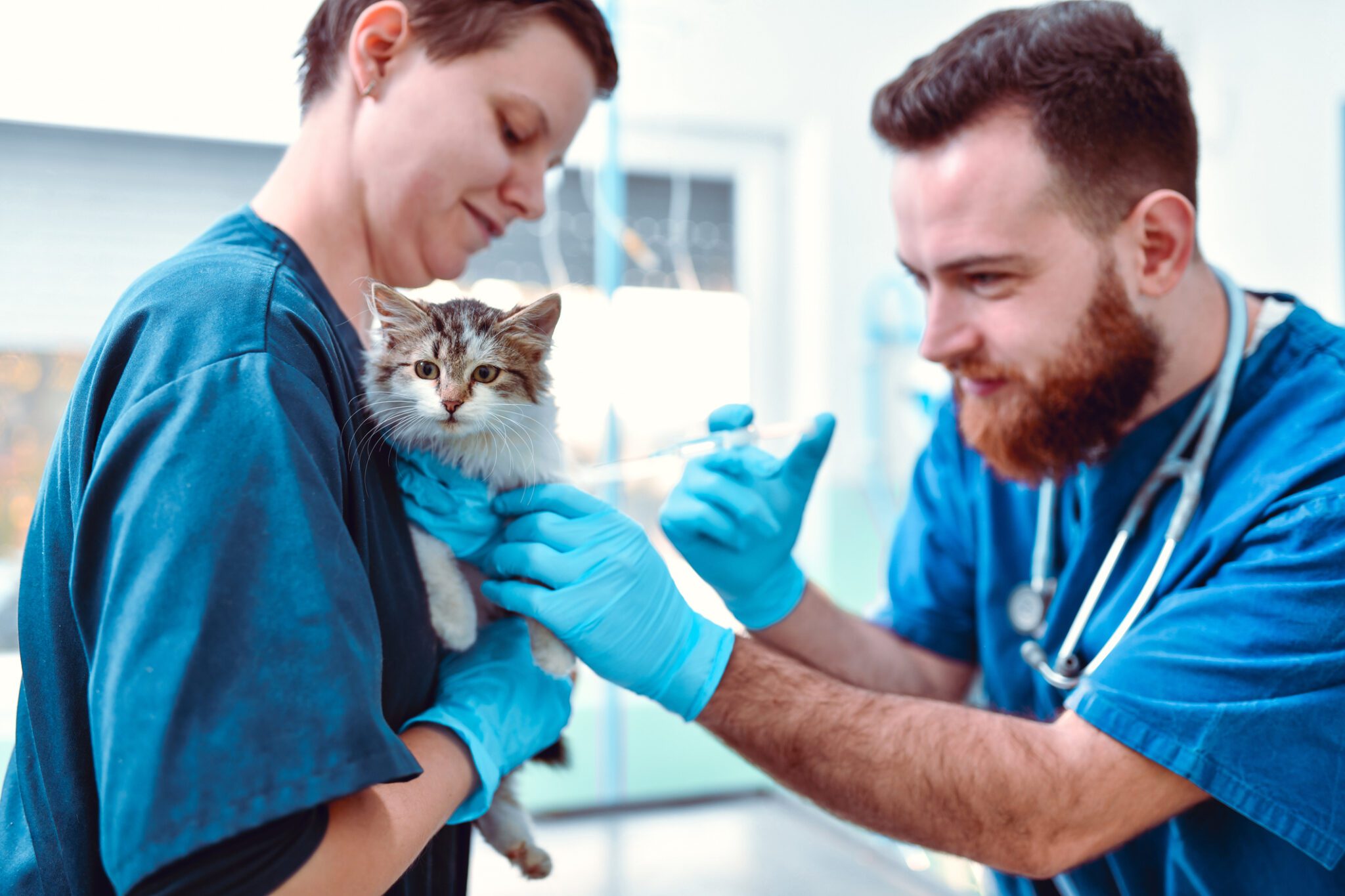Feline Leukemia Virus (FeLV) is one of the most common infectious diseases in cats, affecting an estimated 2-3% of all cats in the United States. FeLV is a retrovirus that interferes with a cat’s immune system, making them more susceptible to other infections and diseases. It’s also important to note, it’s not a form of cancer, despite the term ‘leukemia’ which is commonly associated with a type of cancer in humans.

How Cats Contract Feline Leukemia
FeLV is mainly spread through close, social contact between cats. This often involves sharing food or water bowls, mutual grooming, and even through the bite of an infected cat. Kittens can also contract the disease in utero or through their mother’s milk if the mother is infected. It’s important to understand that FeLV cannot be transmitted to humans or other animals; it’s strictly a cat-to-cat disease.
Symptoms and Diagnosis of Feline Leukemia
While some cats infected with FeLV may show no signs, others may exhibit a variety of symptoms. These could range from loss of appetite, pale gums, and weight loss to infections of the skin, urinary bladder, and respiratory tract. Given the subtle and diverse nature of these symptoms, it’s crucial to have your cat tested for FeLV, particularly if they’re unwell or if you’ve recently adopted. At Rutherford Veterinary Hospital, we use state-of-the-art diagnostics to accurately identify if your feline friend has been exposed to FeLV.
Proactive Steps for Prevention and Management
While there’s no cure for FeLV, the good news is that it’s preventable. An effective FeLV vaccine is available and should be considered for cats at risk of exposure. Keeping your cat indoors and away from FeLV-infected cats can greatly reduce their chances of contracting the disease. Regular veterinary check-ups are vital in catching the disease early, managing symptoms, and maintaining your cat’s quality of life.
Importance of Regular Check-ups
Annual or bi-annual veterinary appointments for your cat can lead to early detection of FeLV. At Rutherford Veterinary Hospital, our experienced team will conduct a thorough exam and perform any necessary tests to ensure your cat is healthy and FeLV-free.
Indoor Cats and FeLV
Even indoor cats can be at risk of contracting FeLV, particularly if they live with or come into contact with outdoor cats. By maintaining a strictly indoor lifestyle for your cat, you can help limit their exposure to FeLV.
Reach Out to the Experts at Rutherford Veterinary Hospital
If you’re a cat owner in Dallas, TX, your partner in ensuring your pet’s health is Rutherford Veterinary Hospital. We prioritize patient care and are committed to educating our pet parents about FeLV. Don’t hesitate to call us at (214) 826-4166 for an appointment or schedule an appointment online. Your cat’s health is our top priority, and we’re ready to assist you in keeping them FeLV-free.
Remember, the information in this blog is meant to be educational and should not be used as a substitute for professional veterinary advice. If your cat is showing signs of illness, contact your veterinarian immediately.


 Have an Emergency?
Have an Emergency?